TOP STORY - Today! Rare Disease Day, 28 February 2025
international Rare Disease Day fosters attention to rare diseases around the world
by Despina Dinca
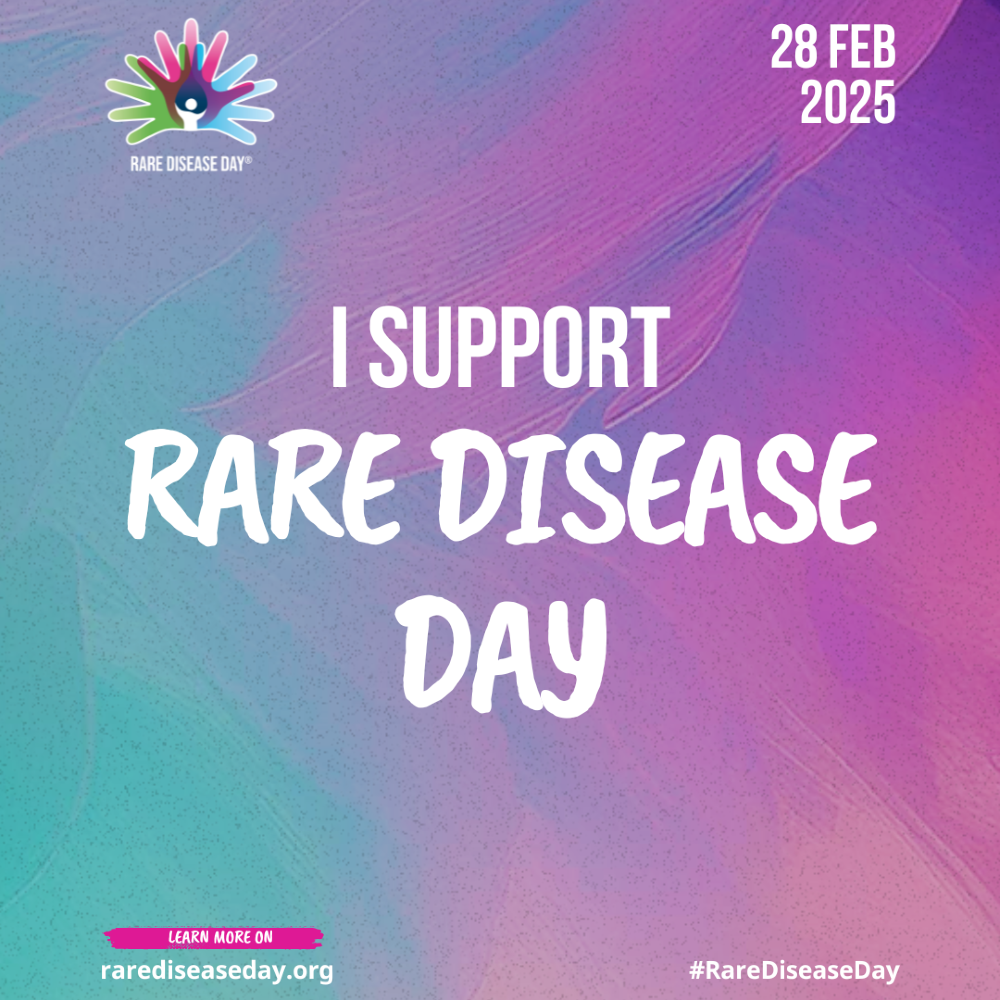
Thank you for reading this 47th edition of NA News. Inside this issue you will find information about Rare Disease Day 2025 and the latest news on research we are funding from Italy to New York. You will read amazing stories about a newly published author-patient, an actor-patient , and a disabilities advocate-patient. There are links to information on the latest VPS13 Forum, as well as news of two upcoming forums and a brief announcement of the date and location of the next international symposium. You will be delighted to meet three new board members of NA-USA. Finally, you will find an inspiring story about fundraising, as well as fundraising ideas you can use.
Rare Disease Day (RDD) is the annual international awareness day when the global rare disease community comes together to raise awareness and advocate for the people living with a rare condition worldwide.
Why is Rare Disease Day so important? Because it’s an opportunity to remind the world that rare diseases are not so rare. Collectively, rare diseases affect 300 millions of individuals and families, and each one deserves attention, research, and support. Collaboration is key to amplifying the voices of small, individual rare disease charities. By working together, we can achieve greater impact and ensure that the needs of the rare disease community are heard.
RDD isn't just a single day though! It's a catalyst for ongoing action. The momentum generated by it fuels year-round efforts to improve diagnosis, access to treatments and care, and support for those living with rare conditions.
This year, RDD once again brings together patients, families, carers, healthcare professionals, researchers, policymakers, and advocates from around the world. Here are some of the coordinated efforts worldwide we know about and we participate in:
Rare Disease Day - www.rarediseaseday.org/
Genetic Alliance UK (geneticalliance.org.uk/event/rare-disease-day-2025/)
- Will be publishing ‘More than you can imagine: an anthology of rare experiences’. It will be online and will share a wide range of experiences from the genetic, rare and undiagnosed communities through creative works such as poetry, stories, photos and drawings. We submitted “Cataclysmic Limericks” by Alex irvine (read more in the article dedicated to it).
- RDD Receptions geneticalliance.org.uk/news/rddreceptions/
- Fundraising and activities in parliament.
Eurordis (www.eurordis.org)
- Special event at the European Parliament in Brussels entitled Impact of Rare Diseases: This aims to highlight the issue of rare diseases to EU policymakers and outline potential policy solutions at the start of the new political mandate.
- Eurordis and its network of national alliance patient organisation partners, provides a powerful focal point for rare disease advocacy at local, national, and international levels.
National Organization for Rare Disorders (NORD)
Don’t forget to follow us on social media around these events and share our efforts with your community. If you have any RDD stories of your own, please share them with us and we’ll publish them. Every voice counts.
We encourage everyone to get involved in Rare Disease Day 2025 and every year! Individually we may bring together only few voices as a charity for ultra-rare conditions, but together, we can make a difference!
 |
|
 |  |
Report from 20th VPS13 Forum, 10 February 2025
Four years of uninterrupted collaboration between clinicians, researchers and patients, their families and carers
by Despina Dinca
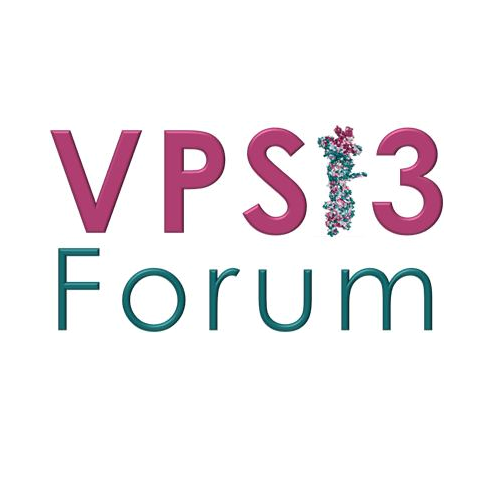 We’re proudly reaching a new milestone with the 20th VPS13 Forum and we are glad to see that the conversations are continuing after almost four years – the exact anniversary will be on 3 May. We’re proudly reaching a new milestone with the 20th VPS13 Forum and we are glad to see that the conversations are continuing after almost four years – the exact anniversary will be on 3 May.
This latest forum’s topic was Lipid transfer and Calcium and it was held on 10 February 2025. There were some very interesting talks and conversations plus we have updates about the 12th International Symposium which will take place in Lausanne, Switzerland, from Friday, 12 September to Sunday, 14 September. More details to follow soon!
As always, we try to make these conversations accessible to our lay audiences, whether patients, their families and carers or just the general public, so we recently published a summary report: https://tinyurl.com/20thVPS13Report (it opens as a pdf document).
You can also find past reports in our archive: naadvocacy.org/research-forum/
Don’t forget to like and share our social media posts about these – every little effort to spread the word far and wide helps all of us!
The dates of the next forums are:
- Monday, 28 April 2025
- Monday, 28 July 2025.
The start time is 13:00 GMT and all details to join will be confirmed nearer the time.
Research We Fund!
Update about a research project we’ve been supporting
by Professor Lucia De Franceschi & Despina Dinca
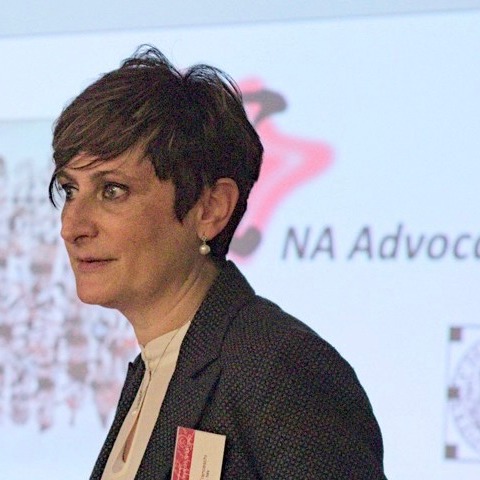 We are proud to announce our continued support of research on VPS13A disease at the University of Verona, Italy. We are proud to announce our continued support of research on VPS13A disease at the University of Verona, Italy.
The grant, "Integrate metabolomic and interactome mapping in mice genetically lacking chorein (VPS13A mice)" has been renewed for two years, extending from April 2024 to March 2026. We cover €9,500 annually.
This grant supports vital work aimed at understanding the underlying mechanisms of VPS13A disease. Researchers are investigating the role of VPS13A, the protein crucial for cellular function, in the development and progression of the disease.
The research group produced recently a paper which is currently being submitted for publication. We are bound by confidentiality at this point, but once it’s published we will share more about the research progress detailed in the paper, which is supported by the grant we awarded.
The study examines the impact of VPS13A deficiency on skeletal muscle. The research team, led by Professor Lucia De Franceschi, used both mouse models and patient muscle biopsies to investigate the effects of the disease.
We remain committed to supporting research that advances the understanding of the neuroacanthocytosis syndromes and brings hope to affected individuals and families. We congratulate the research team on their progress and look forward to hearing about the published paper.
 |  |
Brain Researchers Present Poster on XK Disease
Latest News on the Neuropathology of Neuroacanthocytosis Project
by Ruth Walker
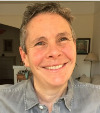 Ruth Walker shares research news from the U.S. side of the Pond. Ruth Walker shares research news from the U.S. side of the Pond.
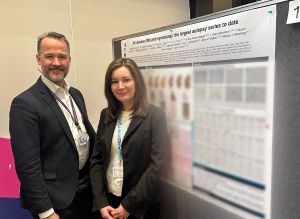 Dr. John F. Crary and Dr. Claudia F. Laborc at their poster presenting their work on the neuropathology of XK disease (McLeod syndrome) at the 10th Anniversary of the Ronald M. Loeb Center for Alzheimer’s Disease at the Icahn School of Medicine at Mount Sinai, NYC, on Tuesday February 4. (Details in the photo to the right are deliberately blurred as they are not yet ready for public dissemination.) Prior research focused on VPS13A . Those same research protocols now are being followed with a new focus on XK disease. As always, we deeply appreciate the patients and their families who, through their donation of brain tissue, have made this research possible. Dr. John F. Crary and Dr. Claudia F. Laborc at their poster presenting their work on the neuropathology of XK disease (McLeod syndrome) at the 10th Anniversary of the Ronald M. Loeb Center for Alzheimer’s Disease at the Icahn School of Medicine at Mount Sinai, NYC, on Tuesday February 4. (Details in the photo to the right are deliberately blurred as they are not yet ready for public dissemination.) Prior research focused on VPS13A . Those same research protocols now are being followed with a new focus on XK disease. As always, we deeply appreciate the patients and their families who, through their donation of brain tissue, have made this research possible.
In other related news, I gave Grand Rounds at Temple University Department of Neurology in Philadelphia on Valentine's Day. The subject was "Untangling the Thorns: Update on the Neuroacanthocytosis Syndromes". A couple of phots below with Dr. Molly Cincotta of the Department of Neurology. It was a rewarding visit despite having to brave the Super Bowl parade crowds!
 |  |
Spreading Holiday Cheer All Year Round
A big thank you to Gill and Gordon Parry, our wonderful long-term donors and supporters.
by Despina Dinca & Ginger Irvine
 Also, we send a big thank you to Mrs D. Hughes and Mr & Mrs J. Hughes, friends of the Parrys who ran a creative fundraiser by selling Christmas cards handmade by them throughout 2024. They kindly donated the earnings to us. Also, we send a big thank you to Mrs D. Hughes and Mr & Mrs J. Hughes, friends of the Parrys who ran a creative fundraiser by selling Christmas cards handmade by them throughout 2024. They kindly donated the earnings to us.
Gill and Gordon Parry have been supporting us in many ways for over two decades. Their tireless efforts to advocate for us in their communities and beyond are certainly very much appreciated.
We hope you will let yourself be inspired by them and start making a difference together with us, too!
Remember:
- Every contribution counts: No matter how big or small, your donation will help NA Advocacy and NA Advocacy USA continue our important work in providing:
- support to patients, their families and carers
- raise awareness and reduce the diagnosis time
- fund research.
- Get creative: From bake sales and car washes to sponsored walks and online auctions, the possibilities are endless. Think outside the box and come up with unique and creative ideas that will capture people's attention and inspire them to donate. Organise a themed event, host a talent show, or create and sell your own crafts or artwork. We’d be delighted to help with supporting materials and discuss what else you may need (info@naadvocacy.org).
- Spread the word: Encourage your friends, family, and colleagues to get involved and support your efforts.
- Make a difference: Together, we can accelerate the search for clues to a cure for those affected by neuroacanthocytosis syndromes.
To donate directly:
 |  |
“Cataclysmic Limericks” by Alexandra Irvine
A delightful collection of witty words and watercolour paintings!
by Despina Dinca & Ginger Irvine
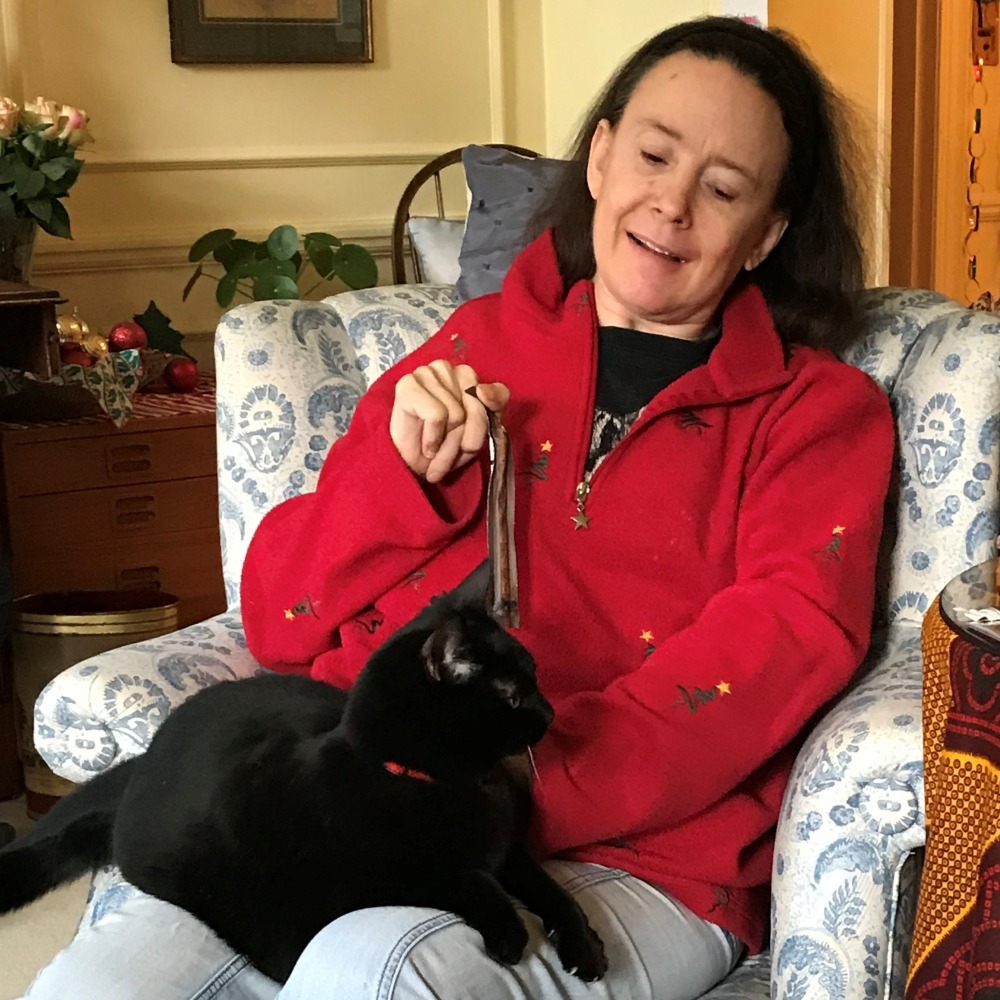 We concluded 2024 with a delightful and quite unique creative project, the book of “Cataclysmic Limericks” created by Alexandra Irvine. We concluded 2024 with a delightful and quite unique creative project, the book of “Cataclysmic Limericks” created by Alexandra Irvine.
We concluded 2024 with a delightful and quite unique creative project, the book of “Cataclysmic Limericks” created by Alexandra Irvine. Her limericks are mostly illustrated with Alex’s own watercolour paintings, and you’ll be able to read the full story of how this project came to life in the introduction. She hopes that the book will bring a smile to your face and those you'll share it with or buy it for.
Alex’s artistic endeavour will support us. She kindly pledged the profits from the sale of the book to us and this will continue to fund our awareness activities and research-funding work.
Alex received some great feedback, and she wanted to share a few of the comments – see the slideshow below!
From what we’ve heard, the use of the book ranges from a great cat-lover gift to an educational present for kids. We’ve also had some interesting requests to organise a reading competition, for each to interpret in their own unique way their favourite limerick(s). We’ll be announcing more about this soon!
In the meantime, you can prepare for the competition, too. The book can be ordered and delivered worldwide: www.lulu.com/shop/alexandra-irvine/cataclysmic-limericks/paperback/product-gj28256.html
The publisher is ‘print-on-demand’ as close to your area as possible, so the shipping costs and the carbon footprint are kept to a minimum.
To catch a flavour of the “Cataclysmic Limericks” check it out here: youtube.com/shorts/cd84mz7H33E?si=gj9Wqq-mv-8Z-2Rg
We are very grateful, thank you, Alex, for your tenacity and resilience, you are truly inspiring!
 |  |
Patient Stories - José Miguel Figueiredo
From Undiagnosed Challenges to Artistic Expression
by José Miguel Figueiredo & Despina Dinca
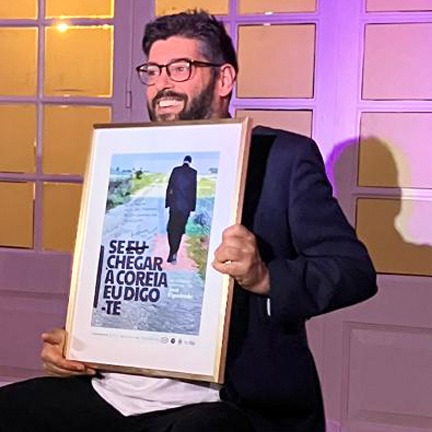
José Miguel is a newly diagnosed patient from Portugal, and he shared his journey with us and we’re delighted to share it with you.
José Miguel Abrantes Figueiredo, a 39-year-old living in Portugal, shares his story of navigating life with VPS13A disease (also known as chorea acanthocytosis), a diagnosis he received in 2024. His journey, marked by years of undiagnosed challenges, has led him to find strength in artistic expression and a renewed sense of purpose.
José's childhood was difficult, with struggles in school and learning. He often felt distracted and clumsy, experiencing bouts of anger. At 19, during a routine blood test for throat surgery, high CPK levels were discovered. This led to muscle biopsies and consultations with private neurologists, but a diagnosis remained elusive. José continued his life, managing periods of depression with psychological support.
In 2017, an accident exacerbated his physical difficulties. After losing four teeth, he developed an unsteady gait. In 2022, a period of deep depression led to a hospital stay, where an MRI revealed signs of VPS13A disease. Genetic testing for Huntington’s disease came back negative. José proactively began therapies, including physiotherapy, hydrotherapy, and speech therapy.
Finally, in 2023, after years of searching, José's case was transferred to a neurogenetics team. A genetic test confirmed the diagnosis of VPS13A disease in January 2024.
Currently, José is under the care of a multidisciplinary team at Santa Maria Hospital in Lisbon. He continues with various therapies, including speech, physio, occupational, hydro, and equine therapy.
Beyond his medical journey, José is a talented artist. He published a poetry book, "Desabafos Por Escrito" ("Written Confessions"), in 2022. He's also a theatre actor, having worked as an extra in various productions. He put together a one-man show, "Quando Eu Chegar à Coreia Eu Te Digo" ("When I Reach Chorea, I'll Tell You"), a monologue about living with VPS13A disease. The performance included singing, another passion of his. See photos from the show together with other life moments José shared with us.
José is discovering new strengths as he lives with his condition. He finds he runs better than he walks and enjoys drawing, which helps his fine motor skills. He embraces challenges and feels a strong drive to overcome obstacles. One of his biggest challenges has been finding something creative to do every day, but he enjoys pushing himself.
Despite the limitations imposed by his condition, José Miguel manages to achieve extraordinary things. He has experienced various sports, including football, tennis, athletics, boxing, and target shooting, proving that nothing can stop him from living life to the fullest.
José offers a powerful message of hope and resilience to others living with Chorea-Acanthocytosis:
"We are all special, and we will not stop living this wonderful life. I know we are capable of accomplishing anything in this grand adventure. Our strength is unstoppable, and this is how we must always think. We will face many difficulties, but we will overcome them. With our strength, nothing will stop us.
Being born with a rare disease does not mean being different or special. It simply means being who I am and making the most of life."
 |  |
A Voice for Change: Gary Gans
Gary advocates for rare disease awareness and disability rights
by Gary Gans & Despina Dinca
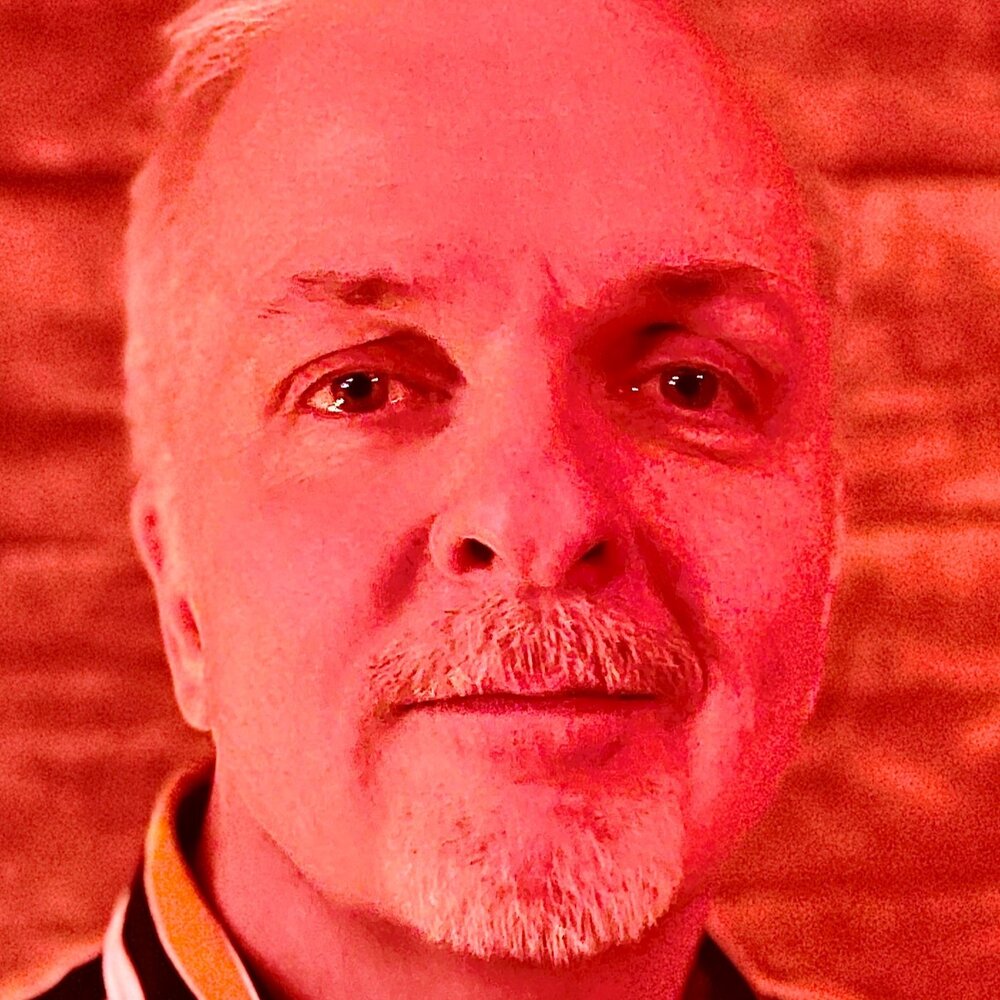 Gary Gans, a patient living with the ultra-rare VPS13A disease (one of the neuroacanthocytosis syndromes), embodies the spirit of advocacy. Gary Gans, a patient living with the ultra-rare VPS13A disease (one of the neuroacanthocytosis syndromes), embodies the spirit of advocacy.
As the Chancellor of the Exchequer delivered the Budget Speech, Gary's thoughts turned to the challenges faced by those living with disabilities, particularly those battling rare conditions. He has concerns about potential funding changes and their impact on this vulnerable community.
Gary has been working with his MP, Layla Moran (Liberal Democrat), who is supportive in raising awareness about the realities of living with a rare disease.
Gary also advocates for a more active role of the research facilities at the University of Oxford and use their capacity to drive education and innovative treatments, which would offer hope for those affected by neuroacanthocytosis syndromes. Understandably progress requires patience and persistence, but he remains determined in his commitment to educating the medical community. He also believes that advancements in rare disease research in general will have positive ripple effects for a broader spectrum of disabilities.
Beyond research funding, Gary is a passionate champion for improved accessibility in transportation. He wrote about the irony of Oxford's newly redesigned train station, which, despite its expansion, may still fall short of providing adequate access for passengers who rely on level platforms. It’s quite in contrast with the accessible platforms of the TfL Crossrail. Also, purchasing a Disabled Transport Pass, allows a reduced price for the most expensive rail system in Europe, yet the only type of mobility aides permitted to enter these trains are those that are able to be dismantled and carried onto the trains. Buses and coaches also deny the ability to use their services, and the SCAS, the South Central Ambulatory Service ended all transport disabled people to and from our transport vehicles for all that require mobility apparatuses to and from their surgeries unless we are it is for renal dialysis since 1 October 2024.
These transportation barriers create significant hardships. Attending an essential medical appointment becomes a financial challenge. Gary shared how his wheelchair batteries are less effective in colder temperatures. So, a return transit van to the Movement Disorders Centre at the John Radcliffe Hospital would cost him £100 when the weather wouldn’t permit him to use his wheelchair. The cost of transport to a specialist oral procedure at a hospital in Banbury, just 25 miles from his home, would exceed £300. Understandably not everyone has access to a personal vehicle or some readily available assistance, so the costs will just amount to a substantial amount.
Despite facing his own health challenges, Gary's is committed to advocate for these issues. In his own words: “I am aware that this is a very ambitious goal, and I may not be able to achieve these goals and aspirations. I am not going to stop until I can improve the dialogue and the empathy that addresses the potential that we have within us to make a positive impact for the future.”
Gary's story is a n inspiring proof for the power of individual action. His efforts to raise awareness and push for systemic change are an inspiration to us all. We will continue to follow Gary's journey and support his vital advocacy work.
If you have similar stories about issues in your region, please could you share them with us. We’re keen to make as many voices heard as possible and support in any way the rights to improved access to transportation for all individuals with rare diseases and disabilities.
 |  |
The Board of Directors of NA-USA is Growing!
Three new members join the board of directors of NA-USA
by Joy Willard-Williford
 The board of directors of Neuroacanthocytosis Advocacy USA, Inc. (NA-USA) recently welcomed three new board members: Kim Thomson of Ohio, Dave Asinger from Minnesota, and Sylvette Ayala-Peña from Puerto Rico. The board of directors of Neuroacanthocytosis Advocacy USA, Inc. (NA-USA) recently welcomed three new board members: Kim Thomson of Ohio, Dave Asinger from Minnesota, and Sylvette Ayala-Peña from Puerto Rico.
Kim joined the board in December. Her sister-in-law, Veronica Thomson, was recently diagnosed with VPS13A. It was Veronica who recommended Kim for a board position. Kim has an undergraduate degree in Business Administration from Mount Vernon Nazarene University in Mount Vernon, Ohio. She currently serves as a Senior Systems Analyst with over 10 years of experience supporting business and sales operations. Dave and Sylvette joined the board at its January 2025 annual meeting. Dave has family members who carry the XK mutation. Sylvette became interested in neuroacanthocytosis syndromes as a result of several patients in Puerto Rico.
Dave’s undergraduate degree is from St. Olaf College, and he was awarded his medical degree at the University of Minnesota’s College of Medicine. He did a radiology residency at the University of Iowa and a Musculoskeletal Radiology Fellowship at the University of Wisconsin Hospital and Clinics. Dave writes: “I am grateful to be a new board member! I am a practicing physician and am excited to get to know the other board members, delve into the scientific understanding of these diseases and potential treatment strategies, and learn how my medical background might be of service to this community.”
Sylvette is a Ph.D. scientist in Biochemistry and Molecular Biology who has worked on Huntington's disease (HD) research for 20 years. Her laboratory focuses on studying the age-related role of mitochondria in the neurodegeneration associated with Huntington’s disease. She garnered her undergraduate degree from the University of Puerto Rico, and her Ph.D. and post-doctoral fellowship from the University of Texas Medical Branch at Galveston. She is an active member of the HD community. Her interest in NA is is because it is a differential diagnosis for HD and because her cohort in Puerto Rico is an umbrella group that includes HD and NA patients, families, clinicians, and researchers. In her community, there are 3 families with NA. She works with a neurologist who has four NA patients. Sylvette believes there are other undiagnosed patients which she would love to identify and support.
We are excited to add each of these three individuals to our board. They bring a wealth of varied experiences and knowledge, and are eager to put their passion for persons with NA to work.
Check out photos of Kim, Dave, and Sylvette in the image gallery below.
 |
|
|
|